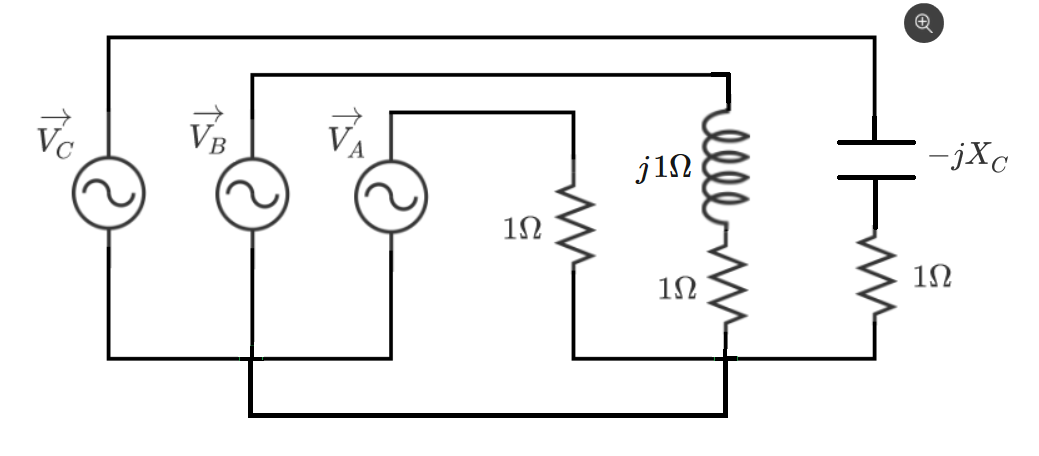Can It Be Balanced?

In this circuit the voltages are a balanced three phase set.
Is there any value of capacitive reactance that can cause the current flowing in the neutral conductor to be zero?
This section requires Javascript.
You are seeing this because something didn't load right. We suggest you, (a) try
refreshing the page, (b) enabling javascript if it is disabled on your browser and,
finally, (c)
loading the
non-javascript version of this page
. We're sorry about the hassle.
Zero neutral current is equivalent to the following:
1 V A + 1 + j V B + Z C V C = 0 1 1 ∠ 0 ∘ + 1 + j 1 ∠ − 1 2 0 ∘ + Z C 1 ∠ 1 2 0 ∘ = 0
Solving for Z C yields:
Z C ≈ 2 . 7 3 2 ∠ − 3 0 ∘
Since the resistive portion of the required Z C is not equal to 1 , no value of capacitive reactance can make the neutral current zero.